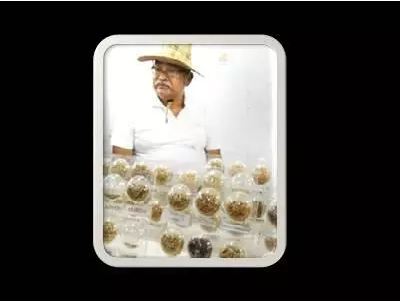
CHENNAI: Five years ago P Devakanta started growing four varieties of traditional paddy at his home in Imphal. What began as a hobby soon turned into a passion that took the 63-year-old across hills to remote villages of Manipur in search of more traditional varieties.
While Devakanta did find about several seeds, he learned that many more were lost. But that did not deter him and Devakanta instead resolved to collect as many traditional seeds as possible. Today, he has 165 types of wild paddy with him.
“It was challenging,” said Devakanta who displayed his entire collection at the National Seed Diversity Festival 2017 (NSDF) held in the city recently.
The climate in the hilly terrain of Manipur, said Devakanta, is inconsistent. And each region has a seed that suits its climate.
“But many traditional seeds have been lost. It made my search difficult,” said Devakanta.
“But there was hope. I found some rare varieties from farmers during one of my initial travels. I didn’t look back after that,” he said.
The more Devakanta travelled, the more he collected paddy seeds. “But collecting seeds was one side of the coin. I had to check the yields in my field. It was after cultivating the seeds I got to know that many were good compared to those available today,” said Devakanta, who is also president of All Manipur Trained Medicinal and Aromatic Plants Promoters Consortium. Wainu chara manbi, laiphou and murshi are some of the most traditional paddy seeds in his collection, he said.
Devakanta’s paddy field at his village Postangbam in Imphal has been a place of experiments.
Manipur is famous for its black rice which is fibre-rich and has medicinal value, and Devakanta has researched extensively on it. “I have done a lot of experiments on black rice. More than 20 varieties of black rice are popular in Manipur today. I have researched on it and my experiments helped me get a clear idea about each variety,” said Devakanta adding that he cooperates with farmers in other areas.
“I share my seed collection with farmers in other parts of India. Many have tested the yield of these traditional varieties at other places. The results have been positive,” Devakanta said.
Source: Times of India
